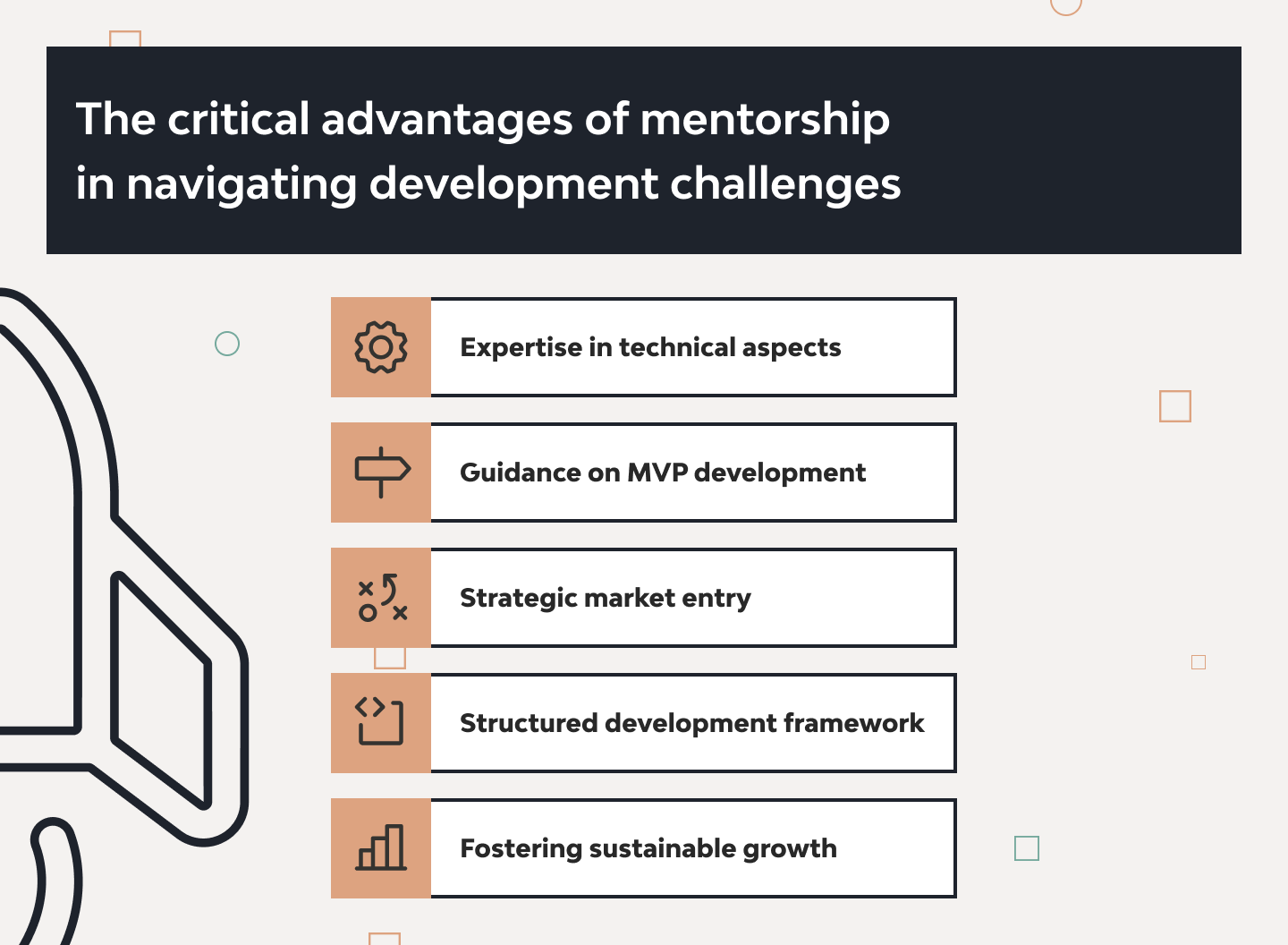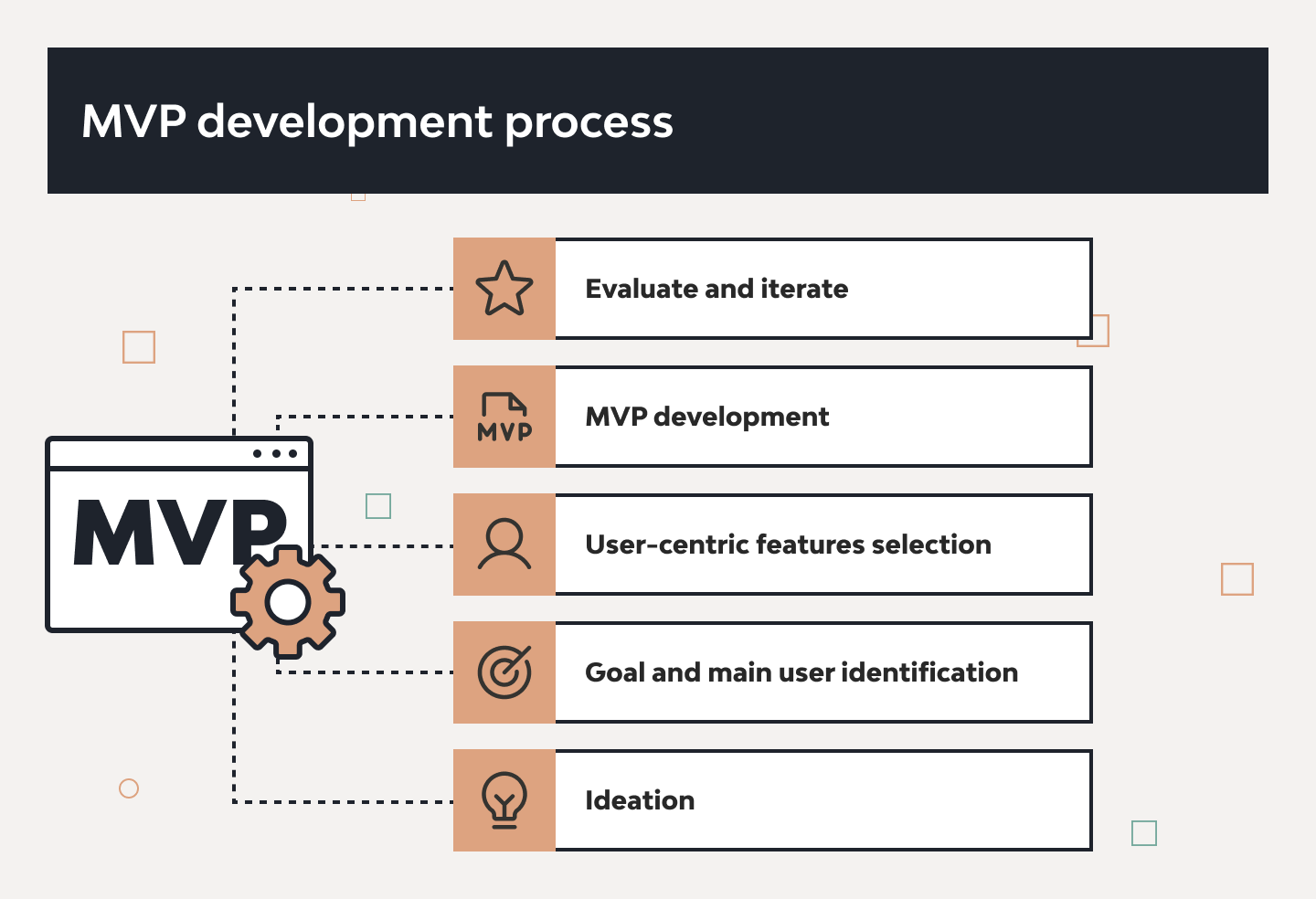Mentorship For Startups in Motion: The Engine Driving Business Growth

Behind the success of renowned companies like Slack, Airbnb, and BuzzFeed, often lies mentors’ quiet yet transformative guidance. This influential support extends beyond high-profile businesses, reaching emerging startups’ hearts. Today, we explore the essence of startup mentorship with a key representative from Django Stars, a company known for driving the success of ventures like Money Park, Diviac, and Sindeo and a proud member of the Swiss Startup Association.
This discussion addresses the most common and pressing questions surrounding the topic. From outlining the key responsibilities of the role to how to find mentors for startup, and exploring the ways they can drive a company’s growth, we aim to provide clarity and valuable observations. Let’s proceed to our insightful dialogue with Roksoliana, our startup mentor.
First, what is a startup mentor at Django Stars?
While mentoring startups, I guide them through the complex terrain of software development in the early stages. This involves providing strategic advice tailored to each business’s specific market and challenges and emotional support to navigate the highs and lows of the entrepreneurial journey. Through mentoring startup, we develop discovery phase services for startups, clear technical roadmaps to ensure these plans align with overarching company goals and the unique value propositions that set them apart.
I play an essential role in communicating with our engineering team by understanding the distinct phases that startups go through—from conceptualizing their unique value propositions to actively engaging with potential investors. The role of a startup mentor is pivotal in transparentizing the software development process for our clients, especially during the crucial MVP (Minimum Viable Product) stage. Clear and effective communication is essential to align all parties on the project’s scope and vision, ensuring that technical execution matches the startup’s strategic needs
To ensure we truly understand a startup’s unique development needs and goals, I explore every detail by asking as many questions as possible. This approach isn’t just about gathering information; it’s about uncovering what makes each project tick. By thoroughly understanding the startup’s vision, challenges, and aspirations, we can craft a clear and compelling roadmap—outlining every development phase, setting realistic timelines, and accurately estimating costs.
Such a comprehensive grasp of the project is not just a checkbox exercise; it’s a strategic asset. It allows startups to build a compelling case for investors, demonstrating not only the viability of their project but also a well-thought-out path to success. Mentoring startups in this way provides the preparation needed to inspire confidence, secure funding, and move forward with clarity and purpose.
Why do you need a mentor for your startup?
Technical aspects are frequently underestimated; without the proper guidance, even the most promising ideas face costly setbacks. Many startups struggle to grasp the full scope of what it takes to build a software product—from the hidden challenges of coding and integration to unforeseen roadblocks in deployment.
A typical scenario I see involves startups attempting to develop an overburdened Minimum Viable Product (MVP). There’s a prevailing belief that packing a product with numerous features from the start will make it more competitive. However, this approach can lead to increased complexity and costs and, more critically, delay the product’s market entry. Mentors for startups assist founders in focusing on the essential functionalities that meet their target audience’s most urgent needs without exhausting their resources. This method not only helps in securing funding but also strengthens the startup’s reputation among investors. Through their industry experience and networks, mentors play a pivotal role in facilitating vital introductions to potential investors and partners, thus significantly improving the startup’s position during funding discussions.
Another clear instance where the value of a mentor emerges is during investment rounds. Here, leading incubators and accelerators across Europe and the USA emphasize the necessity for technical acumen. Experienced mentors for startups provide crucial insights into product development, empowering founders to communicate their technical strategies and goals to investors clearly and effectively.
Ultimately, the result of mentoring startups is a clear roadmap for success, helping to establish realistic goals, avoid common pitfalls, and guide founders toward sustainable growth. This essential guidance considerably enhances a startup’s ability to compete effectively in a challenging marketplace.
How do you differentiate your approach to mentoring for startups, particularly within the Swiss startup ecosystem?
In the Swiss startup ecosystem, where interpersonal relationships, reliability, integrity, and trust-building are paramount, I tailor my mentoring approach to resonate with these core values. The business culture here heavily emphasizes established connections and proven track records. It’s no coincidence that many founders report discovering Django Stars through their professional networks, underscoring the critical role of a strong reputation in this market. This connection between our values and how startups come to know us highlights the seamless alignment of our methods with the Swiss ethos of business excellence.
To deepen this trust, we actively facilitate meetings between prospective startups and our current clients in Switzerland. This openness fosters a transparent environment where new startups can directly hear about our collaborative approaches and the high quality of our work. Such firsthand accounts are vital for building confidence in us as a reliable tech partner, perfectly illustrating our commitment to maintaining the highest standards in every partnership.
What specific services do you provide startups to prepare them for investor interactions?
Alongside our team, we concentrate on investor expectations, refining our deliverables to enhance the startup’s appeal. We commit about 40 hours to the meticulous preparation of essential documents, substantially boosting the readiness of these startups for pivotal investor meetings. Included in these materials are:
– Detailed Estimates: Outlining phases, milestones, and technology stacks.
– Architecture Diagrams: Providing a high-level view of the technical setup.
– Story Mapping and User Journey Maps: Visualizing the user interaction flow.
– Clickable Prototypes: Offering a tangible feel of the application.
– Design Concepts: A few slides to visually communicate the project.
All these are tailored to make the startup’s project investor-friendly and aligned with what investors need to see.
What to ask startup tech startup mentors?
1. What technology stack is best for my project? Mentees often seek advice on choosing tools and frameworks that align with their project goals and ensure scalability.
2. How do I identify the core features of my MVP? Startups commonly ask for help prioritizing features that provide the most value to their target audience while facilitating a smooth market launch.
3. What’s a realistic timeline and budget for my project? Estimating development timelines and costs is a frequent concern, as these factors are crucial for securing funding and managing investor expectations.
4. How can I validate my idea effectively? Mentees often look for strategies to test their ideas, gather user feedback, and refine their products for a better market fit.
5. How do I choose a team to help me secure investors’ funding? Building a team with complementary skills and a shared vision is essential. Dedicated developers play a crucial role in this process, as they bring technical expertise and demonstrate commitment and reliability to potential investors. Mentors can provide insights on assembling a strong group, highlighting the importance of developers who can adapt to changing needs, communicate effectively, and collaborate seamlessly with other team members. A well-rounded team instills confidence in investors, showcasing that you can turn ideas into reality.
How do I write a compelling investment proposal? Mentees often seek guidance on crafting proposals that effectively communicate their vision and secure funding. For tips and templates to help you get started, check out our article “How to Write an Investment Proposal: Step-by-Step Guide with Templates and Examples.”
What are the types of startup mentors?
– Industry experts bring extensive knowledge and experience in specific fields, offering insights into market trends, best practices, and potential opportunities—crucial for informed strategy and product development decisions.
– Serial entrepreneurs who have launched multiple ventures provide a wealth of practical experience. They are invaluable in guiding startups through challenges such as business planning and fundraising complexities.
– Tech startup mentors specializing in product design and engineering help startups tackle engineering challenges and stay competitive by leveraging the latest technological advancements.
– Strategic mentoring for startups focuses on overall business direction, encouraging creative thinking about business models and alertness to emerging trends.
– Lastly, networking experts excel at building connections within the industry. They introduce startups to key players and potential partners, enhancing networking opportunities essential for growth.
At Django Stars, we provide access to industry experts and experienced tech startup mentors who are committed to supporting entrepreneurs throughout their journey.
How to find mentors for startup?
- It’s crucial to identify a startup’s specific needs and development stage. Consider which areas require support—product development, market positioning, fundraising, or scaling. Recognizing these gaps is essential for seeking a mentor with the relevant expertise.
- Next, evaluating the stage of negotiations with investors is essential. Whether just beginning and in need of foundational guidance or further along and facing complex challenges, understanding this position can help in identifying the correct type of mentor for tailored support.
- Leveraging associations and incubators that offer expert mentorship for startups can be highly beneficial, as these organizations often connect you with experienced entrepreneurs and industry experts who provide valuable insights. Engaging with the startup community through events and online forums to build relationships is also crucial for growth.
At Django Stars, we ensure our partners access exceptional software development services for startups. By choosing to work with us, you also benefit from built-in mentorship at no additional cost, further enhancing your chances of success in the competitive startup landscape.
How to be a good mentee?
To thrive as a mentee, crafting a compelling project pitch is crucial. Start by succinctly articulating the project’s vision, the problem it addresses, and identifying the target audience. This clear foundation not only helps mentors grasp the concept thoroughly but also enables them to offer precise guidance. Enhancing this groundwork, actively participating in meetings or presentations is key; the more detailed the information shared, the more targeted the feedback. In-depth discussions about key features and functionalities encourage a constructive exchange, allowing both mentee and mentor to effectively identify and prioritize the essential elements of the project.
It’s also vital to clearly state mentorship expectations and specific goals—whether they involve technical guidance, strategic advice, or market insights. Ask plenty of questions; it’s the best way to resolve uncertainties in development or strategy and fully capitalize on your startup mentorship.
For startups interested in Django Stars’ mentorship, what’s the first step?
Startups eager to collaborate with us can start the process on our website by heading to our dedicated startup page. There, they’ll find an option at the page’s bottom to directly book a meeting. This initial conversation is crucial as it allows us to collect vital information about their project. In the meeting, we’ll discuss their specific development needs and the unique business value they plan to deliver. This detailed understanding enables us to customize our support to perfectly match their goals.
Final thoughts
The insights from Django Stars reveal a compelling truth: mentorship isn’t just beneficial—it’s transformative, propelling startups from developing ideas to market triumphs. This interview vividly shows how mentorship goes beyond surface-level advice, laying down the strategic foundation that launches startups to new heights. In the ever-evolving landscape of startup challenges, the role of a mentor as a navigator, confidante, and connector remains irreplaceably vital.
Check iur startup case studies and claim your FREE consultation with our expert today and transform your business vision into a thriving reality. Act now—let’s make success inevitable.









